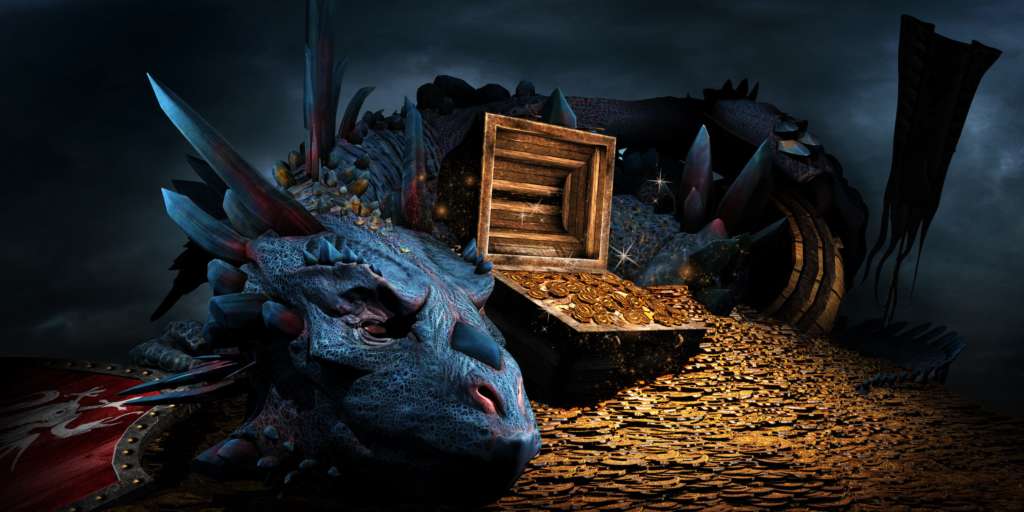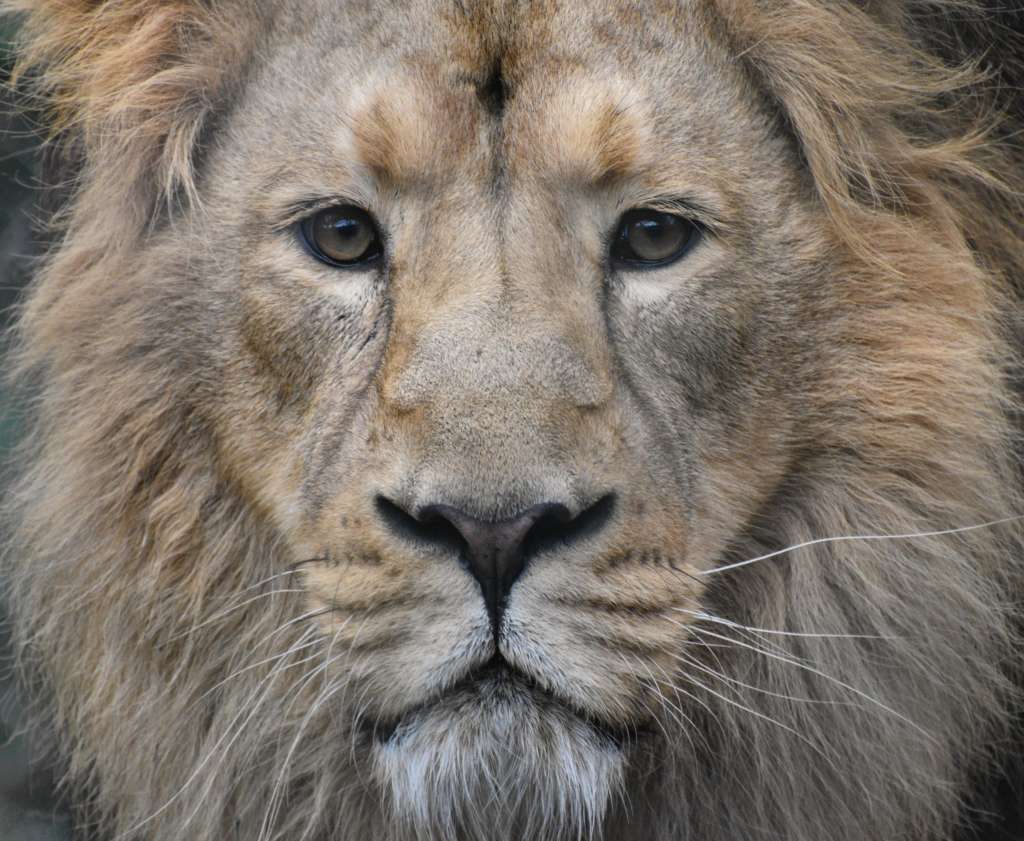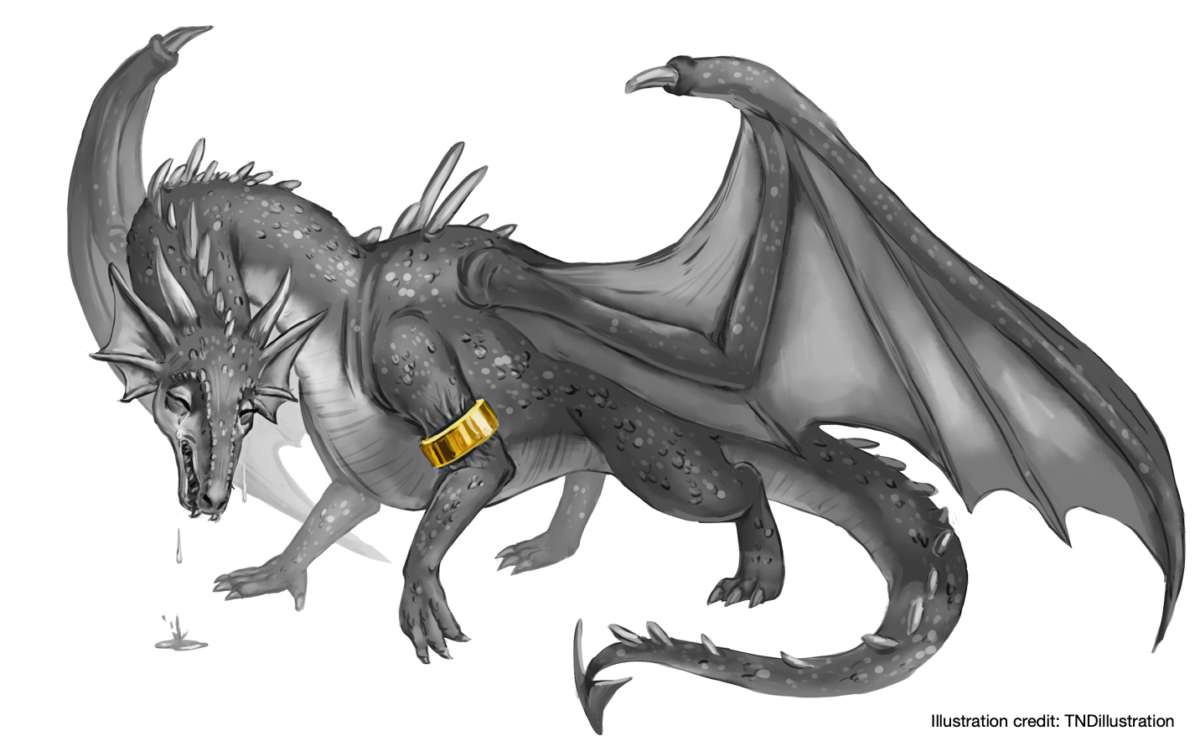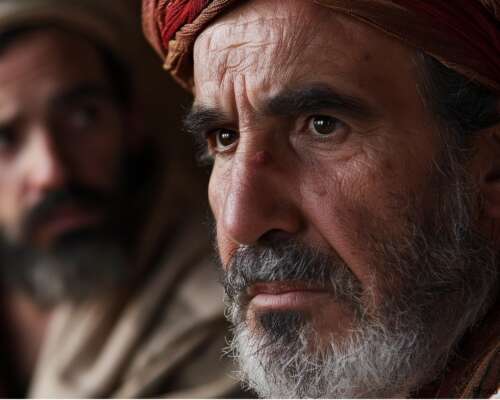This is a case study on the consequence of sin and the pain of recovery, based on the adventures of Eustace Clarence Scrubb while on holiday in Narnia.
For those few who never heard of Narnia, Narnia is a mythical land like Middle Earth, created by JRR Tolkien’s friend and colleague, C.S. Lewis. The premise contemplates what Jesus would look like and how He would interact on a planet of animals–talking animals in many cases. Common beavers and mice, but also uncommon centaurs and fauns, with a few humans present as well. Jesus appears to them as a Lion called Aslan.
Narnia
Narnia is a land of transformation. Perpetual winter gives way to spring, stone statues come to life, base metals like lead are transmuted to fine gold by some alchemical magic, and little boys are occasionally transformed into dragons. Meanwhile, base minds and mortal hearts are likewise changed, for the better–or for the worse–depending on how they respond to the love of their Creator. The pre-adolescent Pervensie children on Earth and their cousin Eustace are transported to this world magically for brief visits and serve as a catalyst of sorts to events unfolding on Narnia. There are seven books in all in the Chronicles of Narnia, and this post will deal with “The Voyage of the Dawn Treader” and a little lost, unhappy, frightened boy named Eustace.
Eustace Clarence Scrubb
Eustace Scrubb was an English boy. He was the sort of boy his peers might call a prigg. The dictionary defines a prigg as “a person who displays or demands of others pointlessly precise conformity, fussiness about trivialities, or exaggerated propriety, especially in a self-righteous or irritating manner.” Eustace was swept away to the magical land of Narnia with the Pervensie children Edmund and Lucy who had been there before.
They join a company of Narnians to sail to the end of the world. Along the voyage, they stop at an island to make repairs to their ship. Attempting to get out of work, Eustace goes exploring. As it starts to rain, Eustace takes refuge in a cave, and in that cave is a large treasure. According to ancient legends, when you find a treasure in a cave, you may also discover a dragon who is left to defend it. This dragon, however, is old or injured and he sleeps deeply, perchance to dream, perhaps never to be awakened. Eustace greedily stuffs his pockets with jewels and takes a gold, jewel-studded bracelet, placing his arm through it. But before he can leave the cave, he is overpowered by sleep, himself.

Enter the dragon
Author Matt Mikalatos describes what follows as Eustace sleeps: “In a favorite scene for many of us, poor Eustace is accidentally transformed into a dragon. He has devolved from human to something much worse. Lewis tells us it’s because Eustace fell asleep on the dragon’s hoard with “greedy, dragonish thoughts” in his heart. He had been thinking poorly of his cousins and his companions, and wishing to be away from them.
A rude awakening
“Eustace slept and slept—and slept. What woke him was a pain in his arm. The moon was shining in at the mouth of the cave, and the bed of treasures seemed to have grown much more comfortable: in fact, he could hardly feel it at all. He was puzzled by the pain in his arm at first, but presently it occurred to him that the bracelet which he had shoved up above his elbow had become strangely tight. His arm must have swollen while he was asleep…
“He moved his right arm in order to feel his left, but stopped before he had moved it an inch and bit his lip in terror. For just in front of him, and a little on his right, where the moonlight fell clear on the floor of the cave, he saw a hideous shape moving. He knew that shape: it was a dragon’s claw. It had moved as he moved his hand and became still when he stopped moving his hand.
“‘Oh, what a fool I’ve been,'” thought Eustace.”
“But just as he reached the edge of pool two things happened. First of all, it came over him like a thunder-clap that he had been running on all fours—and why on earth had he been doing that? And secondly, as he bent towards the water, he thought for a second that yet another dragon was staring up at him out of the pool. But in an instant he realised the truth. That dragon face in the pool was his own reflection. There was no doubt of it. It moved as he moved: it opened and shut its mouth as he opened and shut his.
“He had turned into a dragon while he was asleep. Sleeping on a dragon’s hoard with greedy, dragonish thoughts in his heart, he had become a dragon himself.”
Eustace painfully pondered his dilemma.
“That explained everything. There had been no two dragons beside him in the cave. The claws to right and left had been his own right and left claws. The two columns of smoke had been coming from his own nostrils. As for the pain in his left arm (or what had been his left arm) he could now see what had happened by squinting with his left eye. The bracelet which had fitted very nicely on the upper arm of a boy was far too small for the thick, stumpy foreleg of a dragon. It had sunk deeply into his scaly flesh and there was a throbbing bulge on each side of it. He tore at the place with his dragon’s teeth but could not get it off.
His own devices fail him
Eustace lay in misery and anguish. At some point when he was most forlorn, he says he “looked up and saw the very last thing I expected: a huge lion coming slowly towards me.”

“And one queer thing was that there was no moon last night, but there was moonlight where the lion was. So it came nearer and nearer. I was terribly afraid of it. You may think that, being a dragon, I could have knocked any lion out easily enough.
“But it wasn’t that kind of fear. I wasn’t afraid of it eating me, I was just afraid of it—if you can understand. Well, it came close up to me and looked straight into my eyes. And I shut my eyes tight. But that wasn’t any good because it told me to follow it.”And I knew I’d have to do what it told me, so I got up and followed it. And it led me a long way into the mountains. And there was always this moonlight over and round the lion wherever we went. So at last we came to the top of a mountain I’d never seen before and on the top of this mountain there was a garden—trees and fruit and everything. In the middle of it there was a well.
“I knew it was a well because you could see the water bubbling up from the bottom of it: but it was a lot bigger than most wells—like a very big, round bath with marble steps going down into it. The water was as clear as anything and I thought if I could get in there and bathe it would ease the pain in my leg.” But he was told he could not bathe and ease his pain dressed like a dragon.”
“The very first tear he made was so deep that I thought it had gone right into my heart. And when he began pulling the skin off, it hurt worst than anything I’ve ever felt.”
Eustace tried his best to scrub off the scaly dragon’s skin, but to no avail. And his arm with the bracelet pinching it hurt more than ever. Finally, the lion (the Lord) said softly to Eustace that his dragon’s skin would have to be cut off him. Eustace cried as small boys do, and whimpered: “The very first tear he made was so deep that I thought it had gone right into my heart. And when he began pulling the skin off, it hurt worse than anything I’ve ever felt. The only thing that made me able to bear it was just the pleasure of feeling the stuff peel off.”
Layer-by-layer, like a serpent’s skin, the dragon skin was cut and removed from the boy, until finally the boy could step out, after which Aslan nudged or pushed the now naked boy into the pool. “It smarted like anything but only for a moment,” Eustace recalled. “After that it became perfectly delicious and as soon as I started swimming and splashing I found that all the pain had gone from my arm. And then I saw why. I’d turned into a boy again!”
But not the same boy he had been. He was a new creature, no longer “a person who displays or demands of others pointlessly precise conformity, fussiness about trivialities, or exaggerated propriety, especially in a self-righteous or irritating manner.” And he no longer had “greedy, dragonish thoughts” in his heart.
Skins of our own
Titus 3:3-7 tells us “At one time we too were foolish, disobedient, deceived and enslaved by all kinds of passions and pleasures. We lived in malice and envy, being hated and hating one another. But when the kindness and love of God our Savior appeared, he saved us, not because of righteous things we had done, but because of his mercy. He saved us through the washing of rebirth and renewal by the Holy Spirit, whom he poured out on us generously through Jesus Christ our Savior, so that, having been justified by his grace, we might become heirs having the hope of eternal life.“
This is exactly what Aslan did for Eustace. In kindness and love, he took the consequence of Eustace’s sin from him (the dragon’s skin) and then Eustace was baptized into a new life.
Without getting too literal, what I hope you’ll take away from this story is that while there are spiritual consequences that come with sin, there are also often physical consequences as well. People on meth or other street drugs need to be de-toxed, and withdrawal whether from drugs or booze can be very painful. Eustace, in his day, was a bully. Generations later, priggish children still bully others, perhaps in more sophisticated way as the photo below suggests. People today are imprisoned in vile serpent skins because of hate, prejudice, jealously, lust and maybe just because they have greedy, dragonish thoughts in their hearts. Just as Aslan did not force himself on Eustace, Jesus will not force Himself on you. You have to ask Him for help. And if you do, he will hear and will free you from your prison. But their may be pain in the process.

Narnia is a land of transformation, not because of it’s soil or its oceans or magnificent forests, but because of the presence of its Savior. And that Saviour is also present in our world, ready to transform you. Eustace was at the end of his rope. He tried every device or strategy that he could think of and Aslan was his last hope. Aslan released the child in the dragon’s skin, and maybe, just maybe, there is also a child in each of us wanting to be freed from our dragon skin. While you have any breath in your lungs, while your heart still beats, it is not too late to be freed, to be saved. Let Jesus work His magic on you.
Sanctification
Responding to Mikalatos’ essay from which I quote briefly above, we have an author and chemist named Jonathan Bronico who adds:
“Many people have the misconception that chemists mix two or three chemicals together, and then you get exactly the product you’re trying to make either right away or after a few hours of boiling… but that’s almost never the case. Usually, the product you want is there, but it’s also sitting alongside some of the stuff that didn’t react as well as some unwanted byproduct. What the chemist has to do in these situations is the long, tedious process of purifying out the unwanted material to isolate the desired product by itself. Chemists call it chromatography, but Lewis would call it sanctification.”
In real life on earth, we progress in our sanctification as we “die daily” (I Corinthians 15:31) and are reguarly renewed (Romans 12:2) and allow the Holy Spirit to transform us. It’s sort of like body-building. Before you can create new muscle (anabolism), you must destroy existing tissue (catabolism.) And, just as the chemist must purify the fruit of his labor, so likewise does God purify us. God says in Zechariah 13:8-9
“It will come about in all the land,”
Declares the Lord,
“That two parts in it will be cut off and perish;
But the third will be left in it.
“And I will bring the third part through the fire,
Refine them as silver is refined,
And test them as gold is tested.
They will call on My name,
And I will answer them;
I will say, ‘They are My people,’
And they will say, ‘The Lord is my God.’”
God does not just save us and then send us on our merry way. He invests Himself in our daily circumstances and our personal growth, until He welcomes us to our heavenly home. It’s a journey, perhaps a perilous one–a heartbreaking one, but it’s one with a happy ending. This is your first step.




